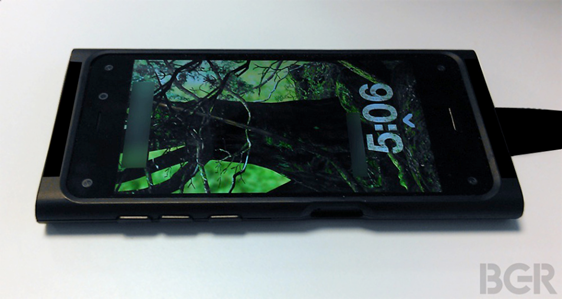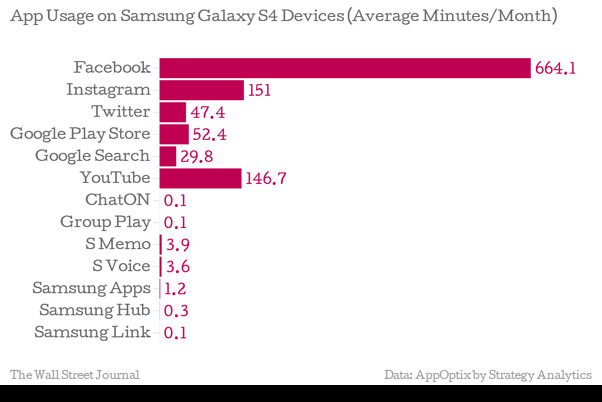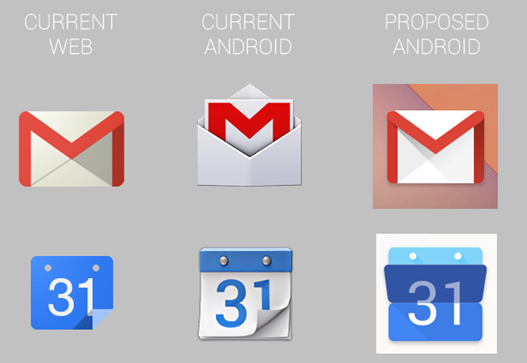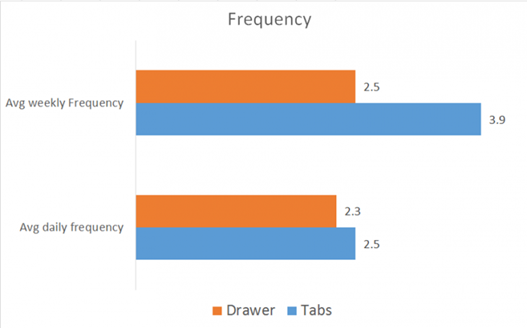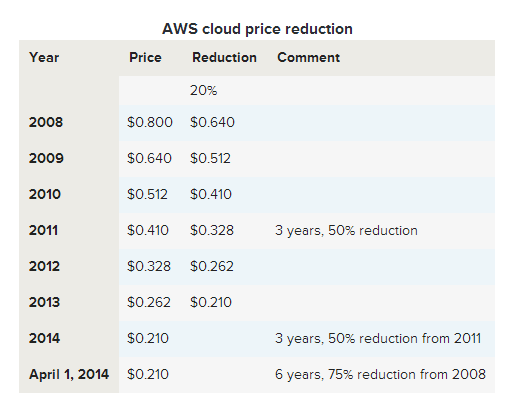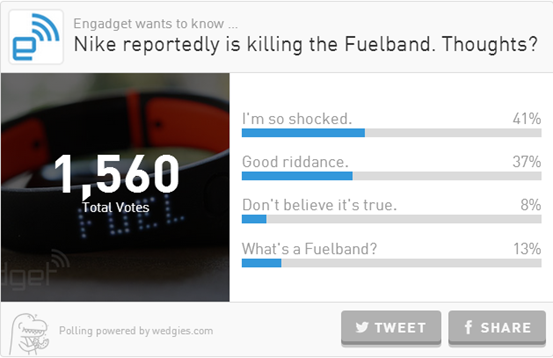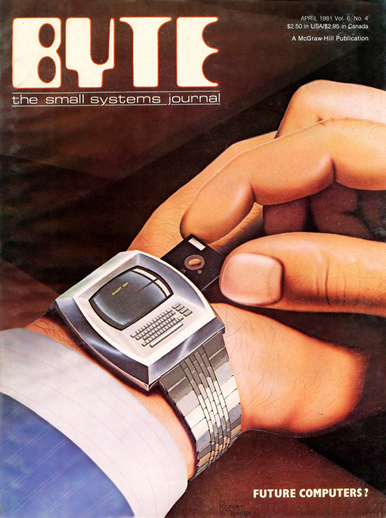Sections
Pick of the week
- This is a long but ultimately really worthwhile and important read on why the winners in the next wave of mobile, namely wearable computing, will be those that are able to bring world class expertise across a range of areas. In particular, the triad of hardware, software and services allied with strong branding and top class data science.
Smartphones/OEMs
- There are suggestions that Apple may be looking to build its own baseband team. They remain peerless, the true class leader in mobile because they cover every aspect of product design and manufacture so well: “In short, the future is grim for any competitor not nearly as invested as Apple is in design, materials, process, and manufacturing. The iPhone 6 will be a product that fully demonstrates just how peerless Apple has become.”
- Meanwhile documents released in court as part of the Apple vs Samsung trial show Samsung looking to replace Android as far back as 2011. That helps explain their continued attempts to launch Tizen, their alternative OS platform. And it seems they are readying themselves to launch their first “high-end” Tizen phone “by end of Q2”: “Yoon Han-kil, senior vice president of Samsung’s product strategy team, said the first Tizen-based smartphone to be launched in this timeframe will be a high-end device”.
- CTIA have created an initiative called the “Smartphone Anti-Theft Voluntary Commitment” to introduce a “kill-switch” feature to smartphones. Google, Apple, Microsoft, Samsung and all the leading US network operators have endorsed it: “Under the terms of the Commitment, smartphone models manufactured after July 2015 and sold in the US will offer the “kill switch” capability either preloaded on the device or made available to download. As well as remotely wiping the phone and rendering it unusable to an unauthorised user, the CTIA also wants manufacturers to prevent the handset from being reactivated without the user’s permission as well as reverse the kill switch when the handset is recovered by the authorised user.” Update: seems that this isn’t going to happen any time soon following a reverse in California.
- Apparently the head of Motorola Mobility in the UK found out about their sale to Lenovo only half an hour before it was made public.
- Nokia Services and Devices business as of 25th April is officially part of Microsoft and apparently will be renamed “Microsoft Mobile Oyj”. Interestingly Nokia is seeking to retain its old supplier base and this may suggest they have plans to launch non-phone consumer electronics devices perhaps as early as this year: The “Nokia Smart watch is something which we have heard about coming in Q3 and one recent tip claims that all the future Nokia hardware will come from HERE division. So, this gives a boost to hopes of Nokia thinking about bringing some consumer hardware in future.”
- It was inevitable somebody would do this – a Raspberry Pi smartphone.
- Obi Mobiles, yet another new smartphone vendor launches in India into what is already a pretty crowded market.
- Steven Sinofsky ex-President of Microsoft’s Windows division provides some great insights into product development and emphasises the importance of viewing “shipping as a feature”. Much of his focus in this article is on the need for clear-minded decisive product management – the essential role of product management is to decide WHAT to do: “Some people love making decisions on their own. Other people need socialization and iteration to make a choice. Either way can work (or not) as a product manager, but to be great you really do have to decide.”
Amazon
- The Everything Store is worthy of its own section this week. First up, a leak of the alleged Amazon eye-tracker phone with no less than four cameras and a “tilt-UI” apparently:
- Amazon’s intention may be to disrupt mobile network operators: “Amazon is planning to offer a unique wireless data plan alongside its first smartphone, which is set to launch in the coming months. The plan is tentatively named “Prime Data,” and it will be positioned as one of several key selling points for the phone.”
- Second, an hour long BBC program offering a fascinating glimpse into Amazon corporate culture and leadership which seems to have some unsavoury aspects including the requirement to drop everything to respond to a “?” email from Jeff Bezos in the hope of receiving a “:-)” response from him when they’ve dealt with the issue.
- As if to underline the darker side of Amazon, on top of their alleged tax avoidance, they appear to show little interest in the FOSS communities that provide the software that powers their businesses.
Android/Apps
- An important post from WSJ citing a Strategy Analytics survey looking at application usage on Samsung Galaxy smartphones in the US. Turns out that mostly users are on Facebook, Instagram, Google and Twitter with Samsung apps making hardly any dent:
- Google Camera app introduced and works on latest KitKat-based devices.
- Apparently a redesign of Android icons is on the cards for unveiling at GoogleIO (suggested outline below):
- Meanwhile, The Verge secured an interview with Matthias Duarte Google’s VP of Android Design. It’s a little bit fluffy and high level but still offers an interesting insight into how the Android Design function is led – by “starting with a problem”.
- Fascinating TNW article on how Zeebox A/B testing revealed Android side drawer navigation to be a real drawback in terms of user engagement relative to a conventional use of plain old tabs as shown in these stats:
- BBC iPlayer video download support now in place for all Android devices from ICS onwards.
- Popular IFTTT app now available for Android.
- DoubleTwist now able to “audio cast” iTunes content on Android phone to Apple TV. Verified with a KitKat device – very nice integration.
- Further evidence of the rise of Mediatek and the increasingly serious challenge they pose to Qualcomm dominance with Android.
- Long but really fascinating must-read Business Insider piece on what drives Larry Page and by implication, Google. Seems like the salutary tale of Nikola Tesla has a lot to do with it and that Page’s ambition is far beyond Android and Search arguably his two greatest creations.
China
- Alibaba have bought AutoNavi. They are also launching an MVNO sometime this June.
- Baidu “to launch a Mobile Wallet service“.
- OTT messaging provision continues to be the likeliest proposition if you want to make money in the Asian mobile software scene.
- Meanwhile network operators are feeling strain. Even the mighty China Mobile faces severe financial challenges in an increasingly competitive landscape. Interestingly, China Mobile “has managed to attract 2.79 million customers to its TD-LTE 4G network since launch just a few weeks ago”.
Cloud/Infrastructure/Security
- Meet Robin Seggelman, the Deutsche Telekom developer who accidentally let in Heartbleed and has probably had better months than April 2014.
- Very entertaining collection of Reddit posts on how little most people are aware of the security risks involved in browsing the web: “I actually think the general population is getting more tech illiterate. As devices have become more user friendly, the level of IT knowledge required to use them has gone down dramatically. So what we have now is the equivalent of a bunch of toddlers running around with bazookas and not knowing what makes them go boom.”
- RightScale “2014 State of the Cloud” report with “deep dive into latest trends in cloud adoption”.
- Amazon again. This time with AWS price cuts since launch in 2008 leading to GigaOM proposing the existence of Bezos’ Law: “Bezos’ law is the observation that, over the history of cloud, a unit of computing power price is reduced by 50 percent approximately every three years…. “if Bezos’ law reflects reality, the only conclusion is that most enterprises should dump their data centers and move to the public cloud, thus saving money.” Details of cuts outlined in here:
- Meanwhile a lot of other enterprise cloud industry players like VMWare, Rackspace and RedHat are aggressively pushing OpenStack as the open platform alternative to closed AWS APIs. And OpenStack adoption does appear to be ramping, indeed “reaching critical mass” according to this Novell report.
Services
- 44% of twitter users have never sent a tweet – for them, it’s all about consumption. Points to a cold start issue for many ordinary Twitter users.
- WSJ reports on best options for picture storage in the cloud – Flickr and SmugMug stand out for Android.
- Meanwhile Dropbox also get in on the cloud image action by announcing Carousel their picture storage solution built on their acquisition of photo sharing site Loom. Carousel is part of a broader move to position Dropbox as a cross-OS OTT Service platform.
- Interesting interview with James Tagg, Truphone CTO on how they built their “global MVNO” proposition though he doesn’t seem to like that term preferring to call it a “next generation global mobile network”. Truphone is backed by Roman Abramovich (yes, that one) and have long been touted as one of the likeliest companies to provide the holy grail of a “global SIM”.
Big Data
- It’s important for SMEs to consider partnership with academia to establish a channel to connect with and enthuse really talented data science researchers for potentially for no cost.
- And coincidentally, it just so happens that Imperial College in London are launching a data science institute.
Wearables/InternetOfThings
- You can buy a Nest thermometer via Google Play now. Coincidentally I had British Gas install Hive at home recently and have it working with both iPhone 5s and Android. Interestingly: “For those keeping track, this makes the Nest Learning Thermostat the only product available on both Google and Apple’s retail site”
- Moves, makers of a popular fitness app platform were acquired by Facebook.
- Big news in wearables over Easter was the decision of Nike to lay off its Fuelband HW team and to reportedly concentrate on the software. There’s been some interesting speculation that it could be a tactical move prompted by inside information about an imminent iWatch launch. Here’s what Endgadget readers thought:
- Talking of Apple, they continue to hire really smart people from the medical product development space furthering speculation that this is going to be a big focus area for them.
- Samsung Gear Fit review from Endgadget suggests great hardware let down by poor software, a sentiment echoed by DC Rainmaker.
- Insightful article highlighting a major area for wearable technology – namely the quantification of corporate wellness. This is a big and growing business for Fitbit.
- The future isn’t what it used to be. Wearable computers circa 1981.
Miscellaneous
- Essentialism is an interesting philosophy which emphasises that less really is more. The Essentialist mantras echo some of the teachings of the Energy Project.
- Along the same lines, it’s worth reflecting on this observation – Richard Feynmann didn’t win a Nobel prize by answering emails. He freed his mind from administration burdens to ensure he could focus all his efforts on thinking.

